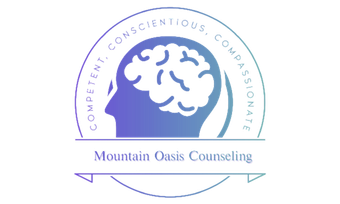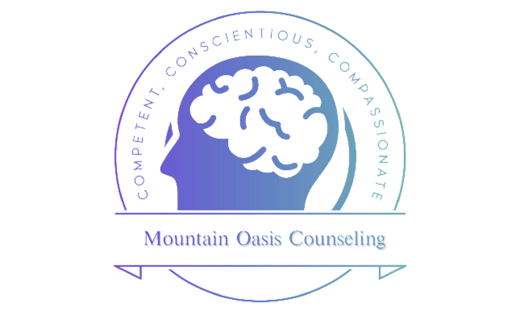About Brainspotting
Have you ever noticed that talking something out or "venting" can make you feel better, but only temporarily, until the issues come up again? Have you ever noticed that even when you understand your issues, it's still difficult to manage the emotions that come with them? Or that despite knowing the right choices or changes that you need to make, feeling like actually making those changes and choices feels difficult if not impossible? You're not alone. There are actually good reasons for all of this. That's because all of this knowledge and understanding take place in the part of the brain that is only responsible for approximately 5 percent of our functioning! What about the other 95 percent, then, you might wonder? The other 95 percent of our functioning takes place in a completely different part of the brain that is not easily accessible through language and talking. This other part of the brain is where emotional trauma and other emotional experiences are stored. That's where Brainspotting comes in. Brainspotting (BSP) is a therapeutic technique that locates points in the visual field to help individuals access emotional trauma and what some refer to as subconscious programming. This actually works to clear the effects of trauma and the other "programming" that has been taking place since birth and even in-utero. Brainspotting is extremely effective in treating trauma, anxiety, depression, performance anxiety, and many other concerns. Clients with OCD (Obsessive-Compulsive Disorder) who have used Brainspotting to treat this condition have reported great success, even when they have struggled for most of their lives with this condition.
To learn more about brainspotting, visit brainspotting.com.
When life pushes you to your limits, know that
we are here to support you.
Our therapists are certified and highly skilled in numerous therapeutic tools, including brainspotting. If talking things out in traditional therapy sessions doesn't seem to get you the results you need, consider our brainspotting intervention. Schedule an appointment to see if brainspotting is the right approach for you!
About Amy Cosner
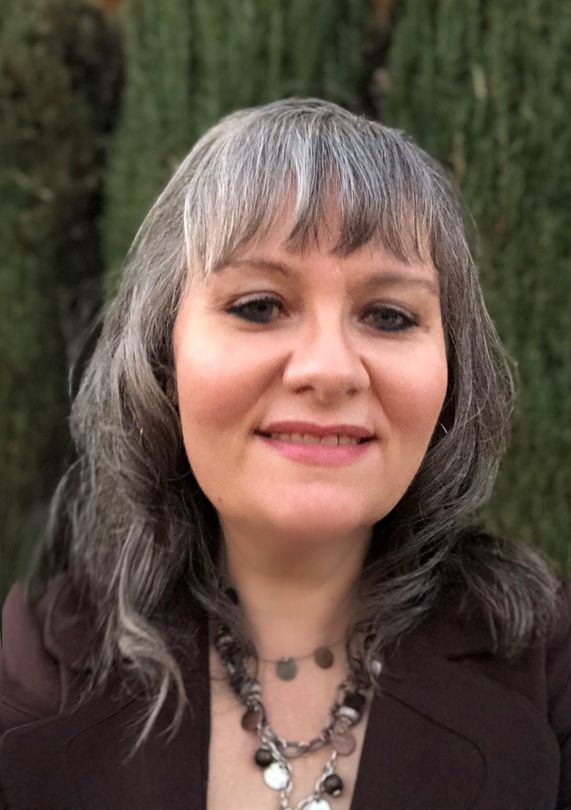
-
Approaches
Amy Cosner is skilled in a variety of issues and treatment options. She provides a warm and gentle touch to her clients and believes that each person's needs are unique and change over time. Amy is highly skilled at meeting these unique and changing needs. She works to get to the root of the problem and not just focus on treating symptoms. Amy's clients consistently say they feel safe, understood, cared for, and never judged.
-
Education & Training
Amy Cosner graduated from Liberty University with a Master's degree in Professional Counseling. She is currently licensed by the State of Nevada as well as the State of Colorado as a Licensed Professional Counselor, as well as being certified as a brainspotting practitioner.
-
Modality
Amy Cosner is trained to conduct therapy sessions with individuals, couples, families, and groups.
-
Specializations
Amy Cosner specializes in helping people with depression, anxiety, addictions, obsessive-compulsive disorder, past trauma, as well as relationship issues. Although these are some of the specializations, Amy has a diverse background with various mental health issues and concerns, and uses a well rounded approach to treatment.
-
Approaches
Jenna Kaufmann works with adults, couples, and families experiencing varied levels of distress, conflict, and despair. She believes that individual health is very often dependent on the different environments that individuals are a part of, especially the family. Jenna's therapeutic approach integrates both insight-building and skill-building techniques. Sometimes this can mean diving into the past in order to find connections to present pains, creating the opportunity for healing and transformative change.
Jenna came to the therapeutic profession following her own experience of change which included increased self-confidence, decreased anxiety, and overall greater life satisfaction, especially in relationships. Not only did this inspire her give back and help others by becoming a therapist, but also allows her to be very dialed into the challenges that her clients are experiencing during some of their most difficult periods. Jenna is focused on building a therapeutic relationship with clients through active listening, curiosity, compassion, and thoughtful interaction.
-
Education & Training
Jenna Kaufmann holds a Master's Degree in Marriage and Family Therapy from Touro University Worldwide. She is currently licensed by the State of Nevada as a Marriage and Family Therapy Intern. Jenna is trained in EMDR, which she integrates with other modalities.
-
Modalities
Jenna Kaufmann is trained to conduct therapy sessions with adults, couples, families, and groups. She uses a combined approach to include Cognitive Behavioral Therapy, Bowen Family Systems Theory, Internal Family Systems, EMDR, as well as others.
-
Specializations
Jenna Kaufmann enjoys working with a variety of mental health concerns including relationship issues, anxiety, depression, and substance abuse. Jenna is particularly interested in helping clients to find balance between their desire to connect with others while creating and maintaining an individual identity.
About Jenna Kaufmann
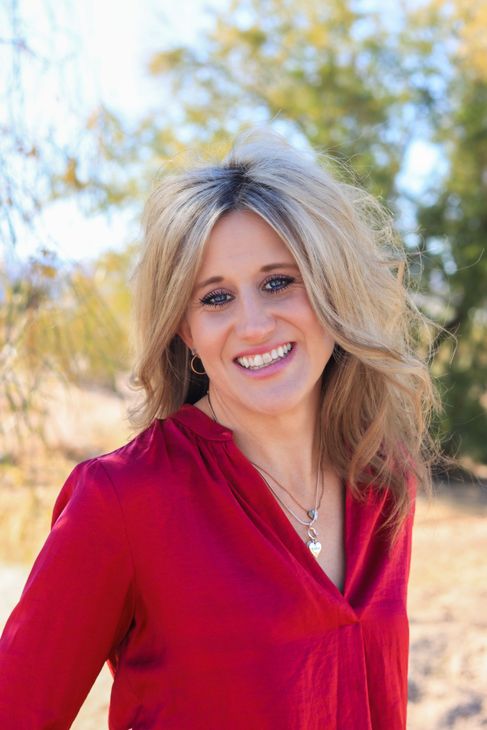
Trust in the process...it works!

Slide title
When Amy first told me about “brainspotting,” I was a bit skeptical but curious. I was willing to give it a shot and see what it might do for my healing. Much to my surprise, it worked! What was most interesting to me, is that it was working and I didn’t even realize changes were taking place until suddenly, I had this ‘ah-ha’ moment where I felt like a different person. What I realized is that I discovered who I am and who I was meant to be without the weight of my trauma.
Conceptually, brainspotting doesn’t seem too complex or challenging, but it is, mental gymnastics (as a wise therapist once said). You have to be willing to trust the process and do the work both inside and outside of the sessions. There were times I felt like abandoning the process, but I found my resolve and I put my faith in Amy to be my guide. She customized the approach and flexed to whatever was needed during each session. It’s been a little over a year since I started brainspotting and I feel like I have taken all of my power back. Anxiety, PTSD, and OCD are no longer in charge of my life! I highly recommend brainspotting. Everyone’s journey will be different, but just remember to trust the process and stick with it…it’s worth it!
-Tracy G.
Button
Slide title
"I came into therapy after losing a loved one and struggling with grief. I was also feeling overwhelmed as a caregiver and mother to a child with ongoing medical issues. I was experiencing anxiety and panic attacks at that time. I had no clue how I could even begin to heal myself mentally and emotionally. My body was experiencing physical symptoms as well. I had been through traditional therapy years ago. I thought I had moved past many things. I was very wrong.
Initially, I started therapy not sure what to expect. When Amy asked me if I wanted to try a new technique called brainspotting, I was open to all possibilities, since I felt so not like my true self. I was very surprised that I was able to use brainspotting and understand its potential healing powers very quickly. To my surprise, each session brought about a new experience, and I have uncovered many issues that I thought had been put to rest. When I began using this technique, I could hardly drive around town without anxiety. Now, I can’t even believe that I ever had an issue with driving. I have overcome many physical issues as well, and I can’t believe I was ever even having trouble. I’m grateful that Amy recommended the use of brainspotting in my sessions. I feel that I have made tremendous progress from where I began. I know brainspotting is the reason for my ability to gain so much more from each session. I am very happy that I gave it a try because it has made a tremendous difference in my healing journey.
-N.M."
Button
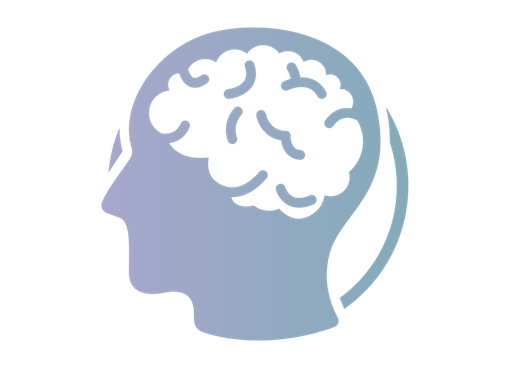
FAQs
If you have any additional questions, contact us!
-
Are counseling sessions confidential?
Yes. As professional mental health therapists, we believe that confidentiality is one of the most important components between a client and their therapist. Therapy requires a high level of trust in order to be successful. What you discuss in your sessions will not be shared with anyone without your written permission (to update your physician, attorney, etc.) State law and professional ethics requires therapists to break confidentiality in the following situations:
Suspected past or present abuse or neglect of children, adults, and elders to the authorities, including Child Protection and law enforcement, based on information provided by the client or collateral sources.
If the therapist has reason to suspect the client is seriously in danger of harming him/herself or has threatened to harm another person.
-
What is brainspotting?
Brainspotting (BSP) is a therapeutic technique that locates points in the visual field to help access unprocessed trauma stored in the subcortical brain. The basics of this concept are that “where you look affects how you feel” and eye positioning can be used as a therapeutic technique to help process unresolved issues.
BSP is a very effective treatment for OCD (obsessive-compulsive disorder). Living with this condition can be difficult, but through BSP therapy the symptoms of this condition can be better managed.
BSP is also useful when treating a variety of other symptoms, such as performance anxiety, whether it be public speaking, anxiety with job interviews, even sports enhancement, and many more. Additionally, BSP is effective when treating trauma-based situations, such as anxiety, depression, and other behavioral conditions where underlying trauma contributes to these conditions.
-
What is teletherapy?
Teletherapy is the delivery of therapy and counseling services via video conferencing. Teletherapy is slowly becoming more popular amongst clients, especially since the pandemic. Teletherapy has allowed us to deliver quality services to clients in the comforts of their homes. This can potentially eliminate some of the reluctance people feel when seeking out a counselor and helps keep both the counselor and patient safe. Teletherapy has also allowed us to improve access to care. You no longer have to worry about traffic or driving long distances to get the care you deserve. If you live in a small community or are unable to find a provider near you that is covered by your insurance, teletherapy could potentially be a great option for you. Your safety is our top priority, we follow all HIPAA Privacy and Security guidelines.
Mountain Oasis Counseling is a trusted mental health service center in Las Vegas, NV. Our mental health service professionals provide exceptional service with proven methods to ensure that we can offer you the support you need. Amy Cosner, one of our experienced mental health service experts , provides individualized counseling services in a comfortable environment in our office or from the comfort of your own home via teletherapy. Amy Cosner is a mental health service professional that specializes in relationship issues and trauma-based conditions. She is trained in brainspotting, a technique that has proven very effective with trauma and PTSD issues.
